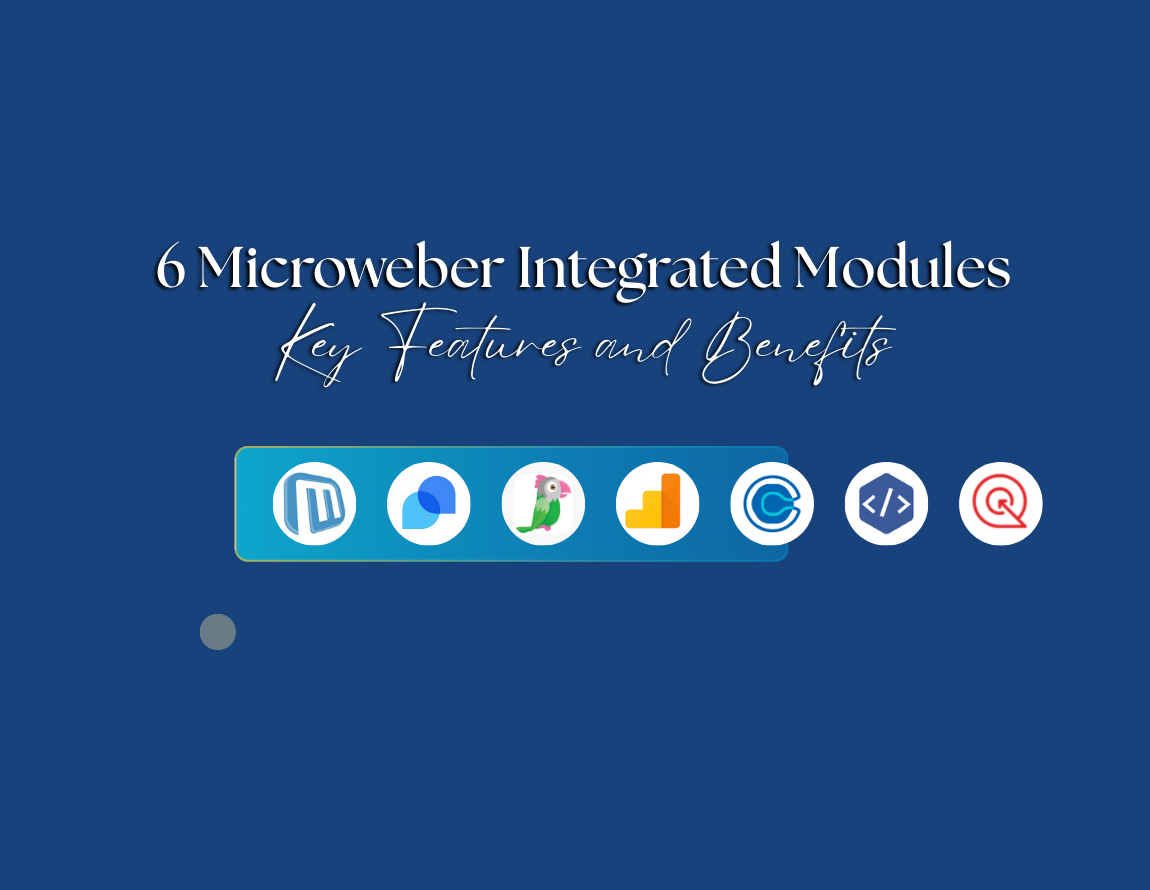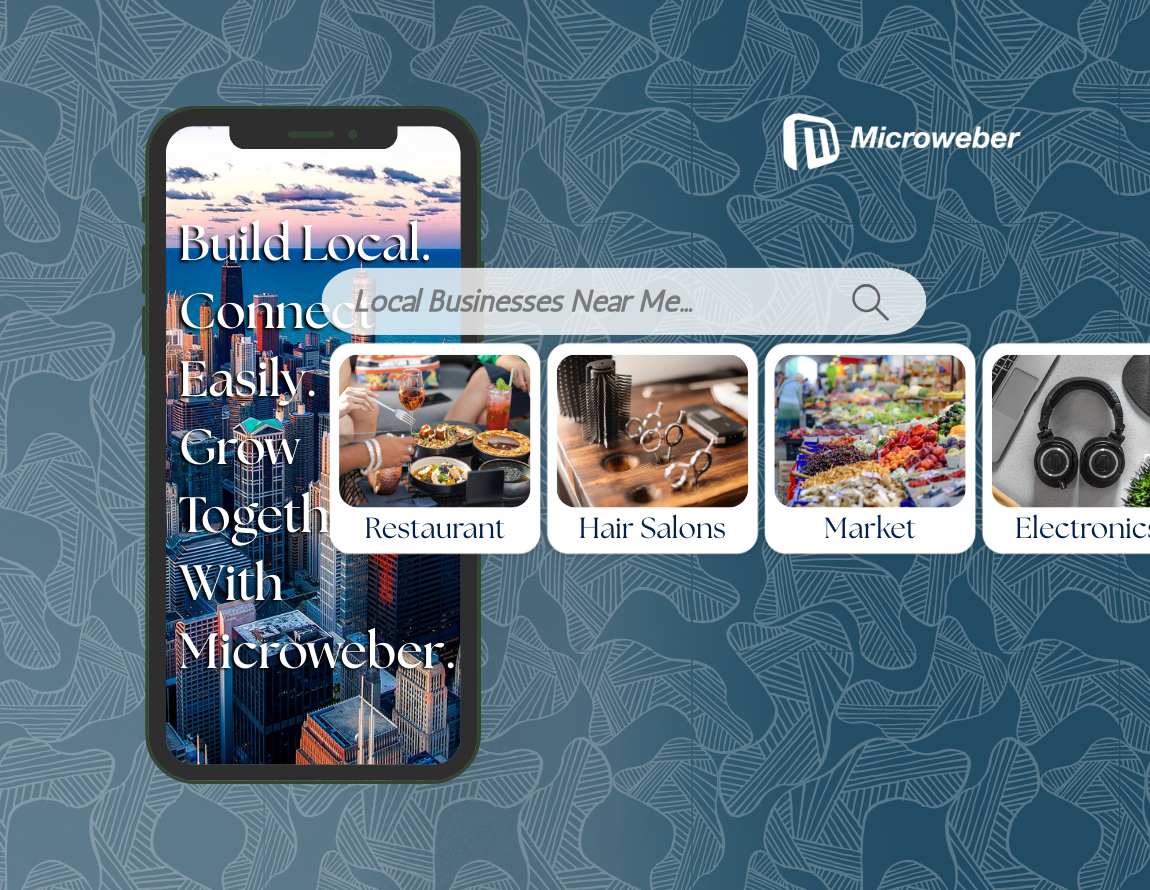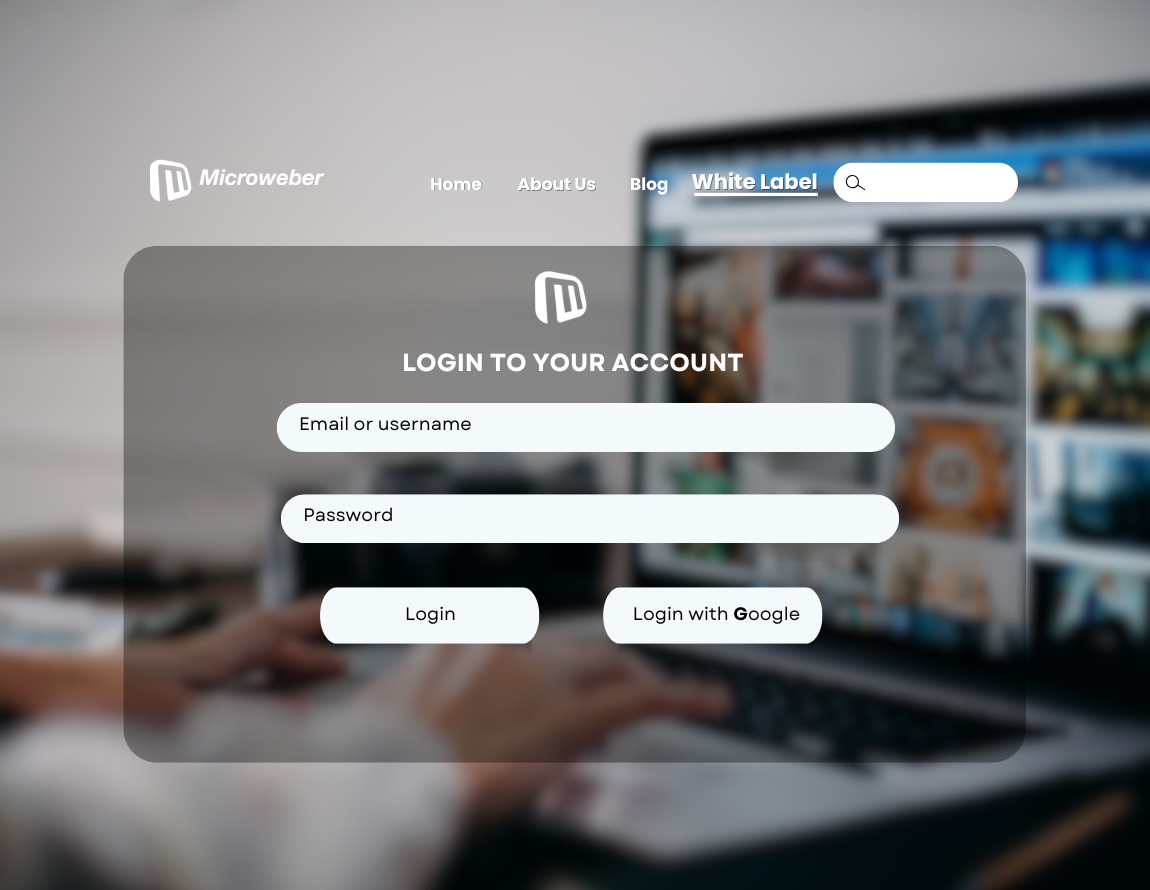Microweber: The Best Platform to Create a Free Website with Ease
Posted on: December 30, 2024 Updated on: December 30, 2024 by Nada Allam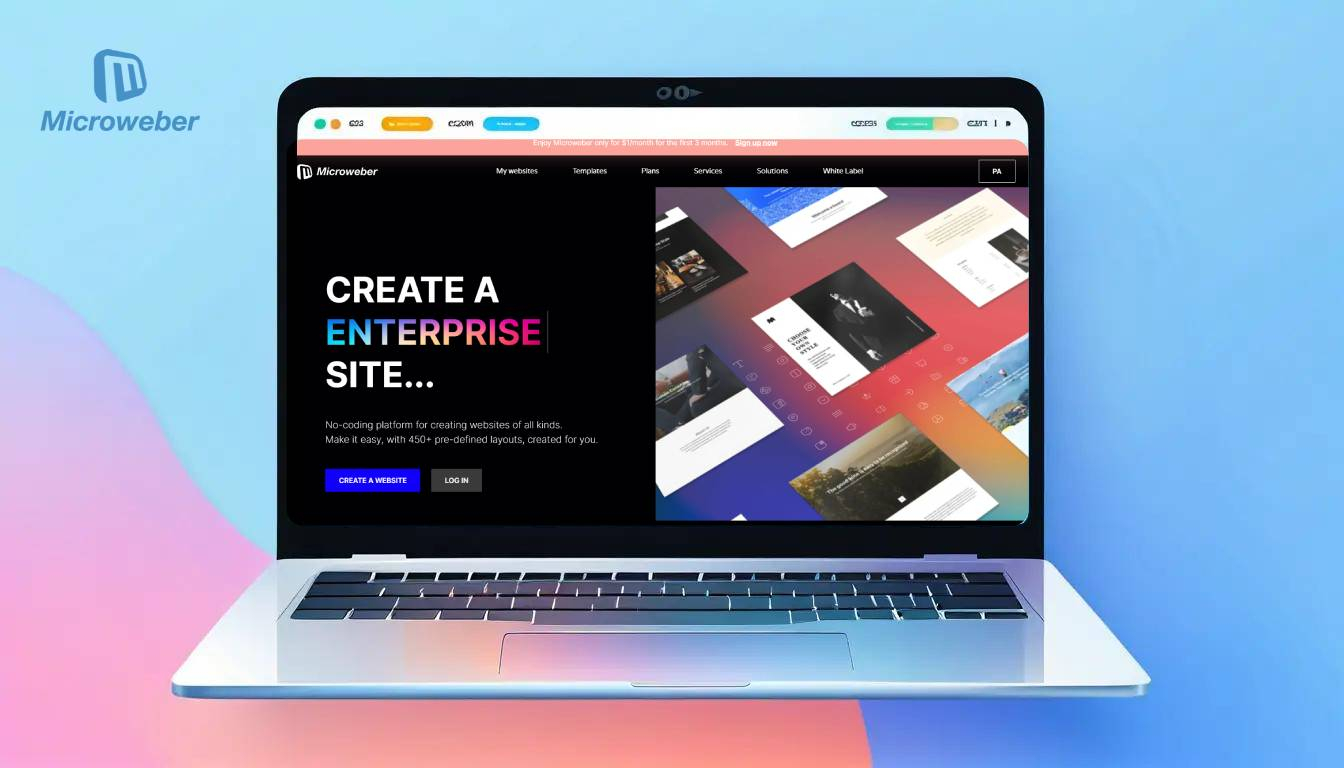 Creating a website has never been more accessible! Till recently, creating an online presence would require at least some technical knowledge.
Creating a website has never been more accessible! Till recently, creating an online presence would require at least some technical knowledge.
Now, with Microweber, anybody can create a website without any headache, whether for personal, professional, or business use.
What makes Microweber stand out is the ease of the interface coupled with the striking features the free version offers. In just a few clicks, you will be able to have a professional, responsive website.
Join thousands of users who created websites with Microweber and start building yours right now!
Ready to begin? Let's get into the details!
Understanding Website Builders for Free Websites
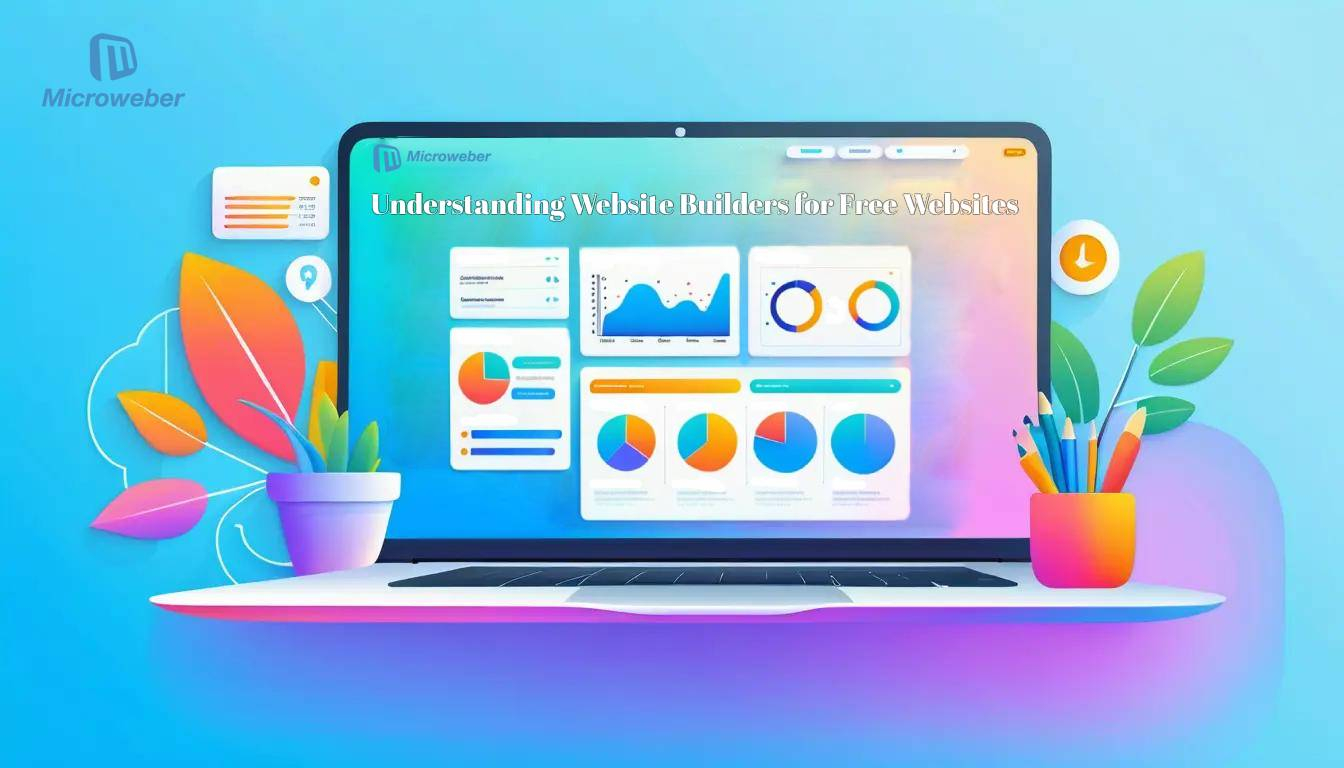 Website builders are changing the way we contemplate website development. In former days, building a site from scratch required a thorough understanding of coding, which could be daunting at the start. Nowadays, website builders make this process all so easy.
Website builders are changing the way we contemplate website development. In former days, building a site from scratch required a thorough understanding of coding, which could be daunting at the start. Nowadays, website builders make this process all so easy.
What Are Website Builders?
Website builders are online resources that can easily enable everyone, including non-coders, to create websites. It comes with a variety of templates that are ready to use, drag-and-drop features, and design features one could easily personalize in building one's website.
The most striking feature of a website builder is perhaps the duality in functionality, simultaneously serving the amateur and more advanced user alike by packaging an intuitive drag-and-drop interface with further advanced settings.
Benefits of Using a Website Builder
Easy to use: To put it simply; No coding is required.
Template varieties: Multiple templates help a person to get started faster.
Flexibility: Anyone can make changes to suit their brand with custom layouts, fonts, and color variety.
Free Option: Most website builders come with a free plan, whereby one can build basic sites with zero upfront charges.
Exploring Microweber as a Free Website Creation Tool
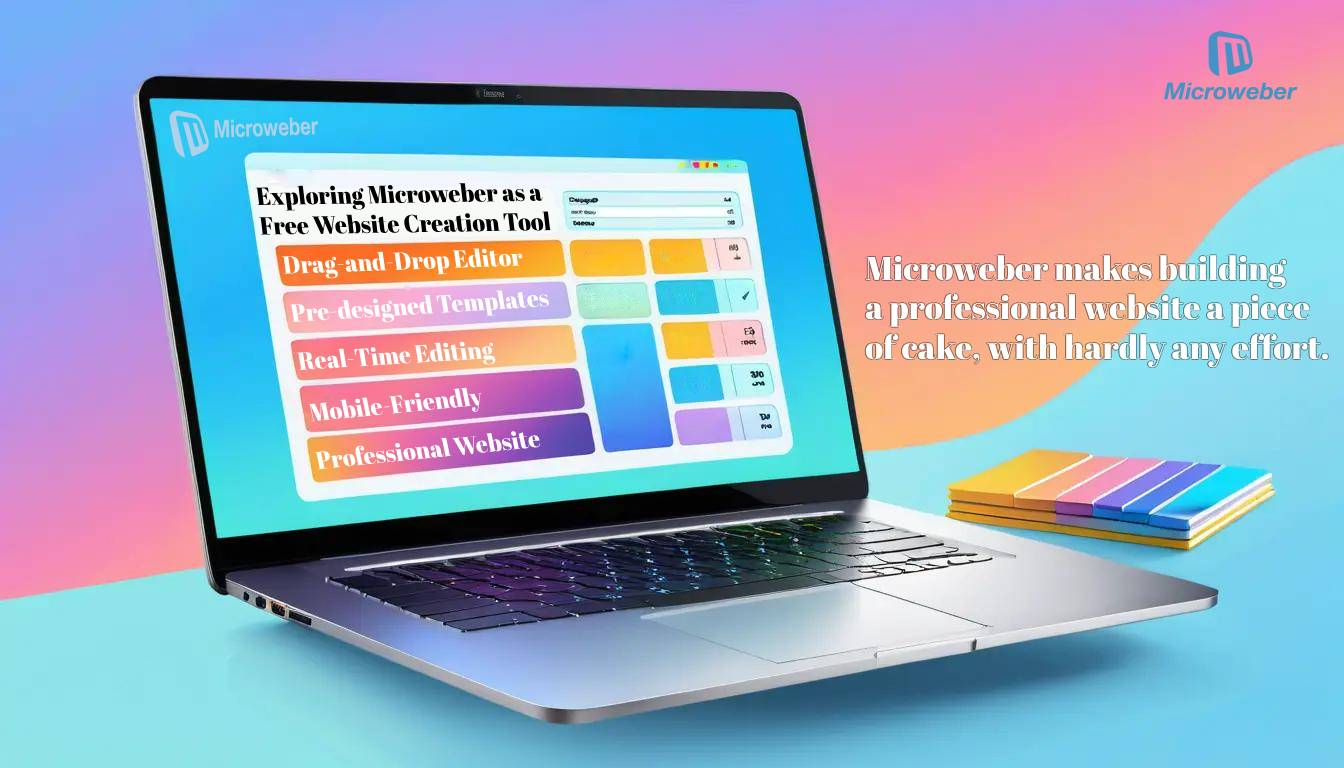 In one sentence, Microweber is an intuitive and user-friendly content management system and website builder, with no comparable tool in matters of ease and flexibility.
In one sentence, Microweber is an intuitive and user-friendly content management system and website builder, with no comparable tool in matters of ease and flexibility.
With Microweber, it would be easier to engage in website development by either experienced or non-experienced users in web development without prior technical skills.
What Makes Microweber Stand Out?
So, here are some reasons why Microweber manages to stand out from most as an absolutely free website-building software option:
Drag-and-Drop Editor: You can make a stunning website with no coding by selecting elements that you want and placing them where they belong.
Pre-designed Templates: Choose from a wide variety of modern, responsive templates that best fit different types of websites, from personal blogs to business sites.
Real-Time Editing: Changes can be edited in real time within Microweber, and you will see them right on the spot without having to refresh the page.
Mobile-Friendly: It makes sure that your website looks great on any device. It offers responsive templates, which automatically adjust for mobile users.
With these features, Microweber makes building a professional website a piece of cake, with hardly any effort.
Step-by-Step Guide to Creating a Free Website
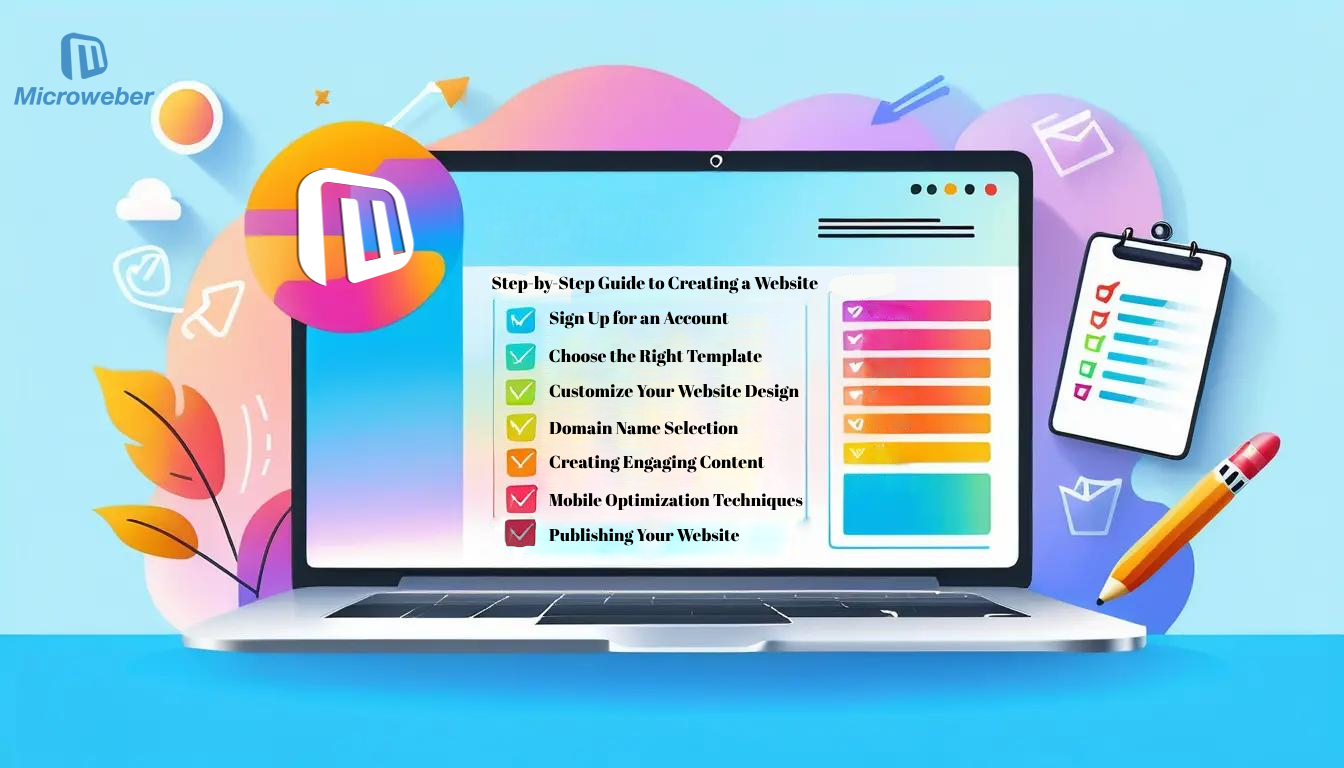 Building a website with Microweber is a piece of cake. I’ll lend you a hand and lead you through a step-by-step process of how to get going building your free website with it.
Building a website with Microweber is a piece of cake. I’ll lend you a hand and lead you through a step-by-step process of how to get going building your free website with it.
1. Sign Up for an Account
It basically takes a sign-up to get it going. Go to Microweber and start the registration process with a valid e-mail address; do not forget to create a secure password for your protection.
Signing up is pretty fast and free, allowing you to get started on an instance.
2. Choose the Right Template
The next thing you may want to do immediately after setting up your account is choosing a template. There are a number of Microweber templates for different kinds of websites.
Be it a personal blog or small business website, choose the best fit for your needs. You can change your template later at any time, so don't overthink your first choice.
3. Customize Your Website Design
Your website is a reflection of you and your brand. Each piece of text, image, or even chosen font or color represents your identity. This is why customization is crucial for any unique brand.
Texts, Images, widgets, and more; utilize Microweber’s drag-and-drop editor and create a page that aligns with your vision. Don’t stop until you’ve reached your idea of perfection.
Tailor your website, add or remove pieces, and adjust the pages to match the brand and personality you’re aiming for from the start.
4. Domain Name Selection
When you create a free website, Microweber allows you to use a subdomain, like yoursite.microweber.com, or the ability to buy a custom domain, such as www.yoursite.com.
Of course, the subdomain would be free, but paying for a custom domain adds professionalism to branding and SEO.
5. Creating Engaging Content
Content is king on any website. When the design is set, now it's time to fill it with content that actually speaks to your audience.
It allows easily creating SEO-friendly content in Microweber, with formatting text, headings, and inserting of images. Just focus on creating good and qualitative content that will enrich the readers.
6. Mobile Optimization Techniques
Microweb will automatically optimize your website for mobile devices by default. It should look smooth both on smartphones and tablets, but it is always good practice to check your site across devices to confirm everything is as it should be both aesthetically and functionally.
With responsive templates from Microweber, it will automatically adjust to every screen size and will be smooth on both phones, tablets, and desktops. This means that your visitors will enjoy a great user experience when accessing your site.
7. Publishing Your Website
Once you have your design and content in a place where you like it, it's time to publish! Double-check that everything looks just right, test links, make sure images are showing up, and your contact info is correct. Do one last check, then hit "Publish" and go live!
Tips for Managing and Promoting Your Website
 Keep your website active, not passive. After putting your website online, it's time to make it more dynamic with the help of regular updates on content and interaction with the visitors, and promotion of the site using social media. A few tips include:
Keep your website active, not passive. After putting your website online, it's time to make it more dynamic with the help of regular updates on content and interaction with the visitors, and promotion of the site using social media. A few tips include:
Content Updates: Adding regular blog postings, articles, or product updates keeps them current with audience attention.
SEO Optimization: SEO techniques will help your website appear in search engines, hence making it easy for visitors to locate your website.
Social Media Promotion: This will allow sharing of your content on other social media platforms.
Conclusion
Microweber provides the easiest way to create your website by using its drag-and-drop editor, which features ready-to-use templates and mobile-responsive design.
Be it a personal blog, portfolio, or even business website, the platform will give you everything required to materialize your concept in record time and without requiring any programming skills.
The platform’s ease of use means a professional, mobile-friendly website with minimal fuss, thus ideal for those planning to create a device-friendly website.
So, why wait? Start creating your free website today with Microweber, and enjoy the ease and flexibility already experienced by thousands of users. Get started now!
FAQs
How to create a website for free?
To create a free website, one needs to do the following: create an account at the website builder- Microweber; choose any template; do the alterations in design; fill it up with content, and publish your website. There are some website builders that allow creating free websites for free, so the only investment is your effort.
What are the 7 steps in creating a website?
Sign up for an account
Choose a template
Customize your design
Select a domain name
Create engaging content
Optimize for mobile
Publish your website
What does URL mean?
A URL is the Uniform Resource Locator that provides the web address applied to access any particular website or page on the Internet. It is what you should type into your browser's address bar in order to visit that particular website.


